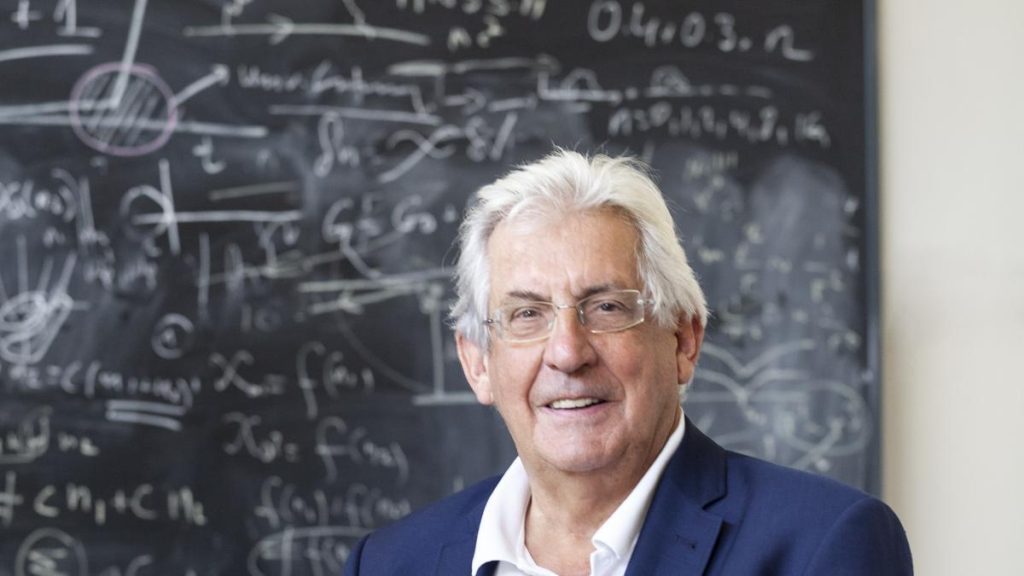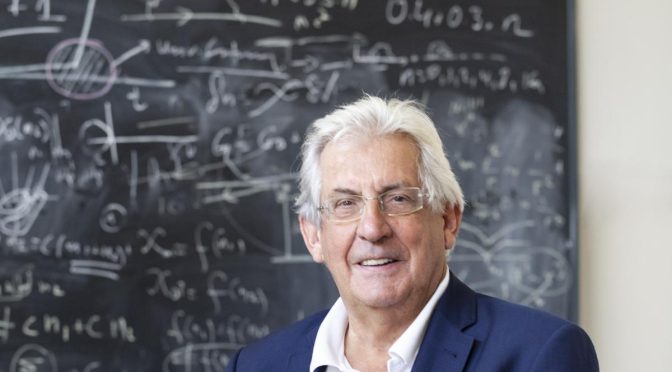As a scientist of Basque heritage, it is truly inspirational to see the success of people like Professor Pedro Etxenike. Not only is he a world class scientist, but over his career he has advocated for the role of science in society, helping the Basque government form educational and scientific policy as well as advocating for the wider use of the Basque language. In a society where musicians and athletes tend to capture our attention, I think it worth while to also celebrate people like Pedro Etxenike.

- Pedro Miguel Etxenike Landiribar was born in Isaba, Nafarroa, on June 8, 1950. His father, Pedro, was a medical doctor and his mother, Felisa, was a teacher. At the time, Isaba was a village with less than 1000 people. Etxenike attended a local Catholic school before enrolling in the University of Navarra, obtaining his degree in physics in 1972.
- Etxenike went to the University of Cambridge in the United Kingdom for his graduate studies, under the mentorship of celebrated physicist John Pendry, a solid state theorist who developed the concepts of the super lens and the invisibility cloak. Etxenike obtained his PhD in 1976, followed by a second one awarded by the Autonomous University of Barcelona in 1977. His thesis was titled Interaction of electronic particles with surfaces.
- After graduate school, Etxenike did a postdoc at Oak Ridge National Laboratory and spent time at the Niels Bohr Institute before accepting a faculty position at the University of Barcelona. However, in 1980 he stepped down to take a position in the government of the Basque Autonomous Community – the political entity that is composed of Bizkaia, Gipuzkoa, and Araba. In 1984, he returned to academia, becoming a professor of Condensed Matter Physics at the Donostia campus of the University of the Basque Country.
- Etxenike’s scientific work has focused on the interaction of charged particles with solids – how they behave once they’ve entered the solid. This work is important for understanding the interaction of ions with solids, such as encountered in the semiconductor industry when they implant elements in to silicon, or how electrons interact with a solid in electron microscopy. His more recent work has focused on topics such as study topological insulators and attosecond physics. He has published more than 400 papers that have been cited nearly 30,000 times.
- He has received numerous awards and accolades for his work over the years, including the 1998 Premio Principe de Asturias, the Premio Vasco Universal in 1999, and the 2002 Medalla de Oro de la Real Sociedad Española de Física. He is a Fellow of the American and the European Physical Societies and a member of the Spanish Royal Academy of Sciences.
- Over his career, Etxenike has been a statesman of science, espousing the role of science in society. For example, he recently presented the film The Name of the Rose at the “Cinema and Science” event held in Donostia, highlighting the role of science in modern humanism and that of cinema in conveying scientific ideas and thinking.
- He has also been a champion of Basque language and culture. In his stint in government in the early 1980s, he served as Minister of Education and as Minister of Education and Culture and Spokesman for the Government; in these roles, Etxenike was instrumental in passing the law normalizing the use of Basque. He also helped set up the modern Basque educational system and the establishment of research and development centers.
- In addition to all of these activities, he is the founder and first president of Donostia International Physics Center, was the first director of the Center for Materials Physics, and was instrumental in the establishment of the Cooperative Research Centre CIC nanoGUNE. He was also one of the founders and first president of Jakiunde, the Academy of Sciences, Arts and Letters of the Basque Country.
Primary sources: Pedro Miguel Etxenike, Wikipedia; Etxenike Landiribar, Pedro Miguel. Auñamendi Encyclopedia. Available at: https://aunamendi.eusko-ikaskuntza.eus/en/etxenike-landiribar-pedro-miguel/ar-152038/


